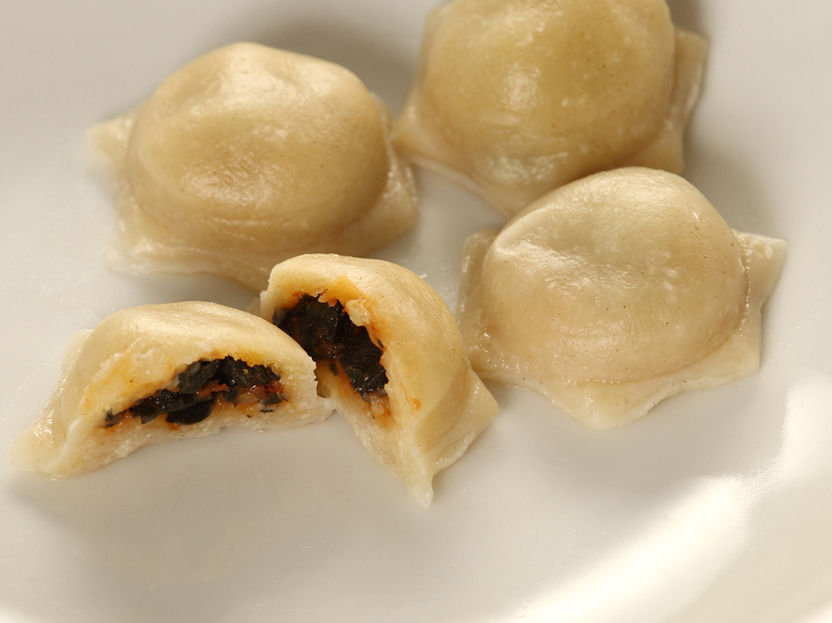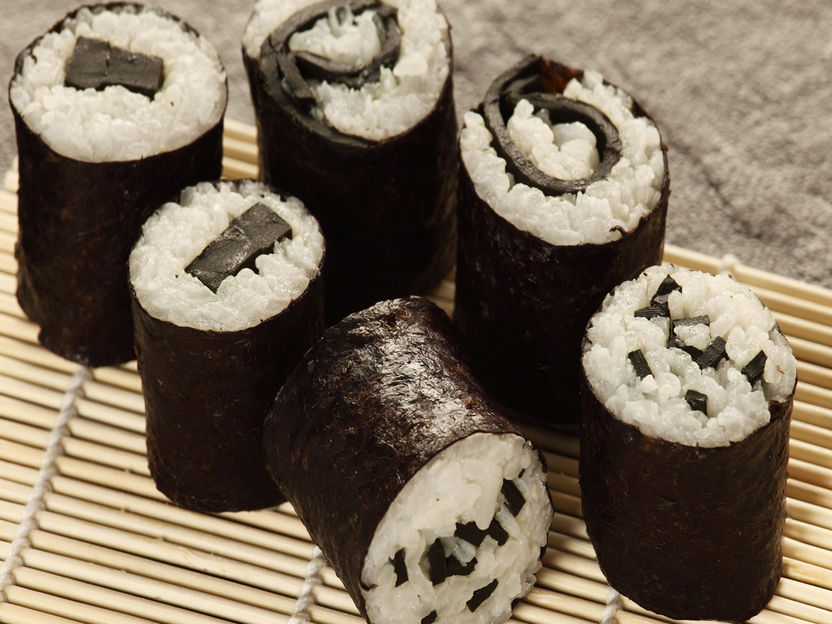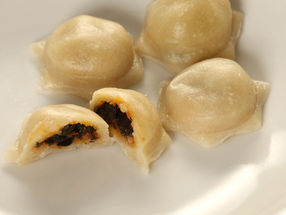Foods of the future
Researchers investigate acceptability and taste of microalgae as an ingredient
Advertisement
A steadily growing world population brings with it an increasing demand for protein-rich food. Since meat production cannot be increased indefinitely, scientists have been seeking to establish alternative protein sources. Researchers at the University of Göttingen are currently investigating the suitability of the protein-rich microalga spirulina (Arthrospira platensis) for the production of food. Besides texture and taste, they are also looking into consumer acceptability.
So-called high moisture extrusion cooking is an established process for producing fibrous and bite-resistant products from soya protein that resemble meat in their texture. Supermarkets carry these products in the form of soya escalopes, steaks or nuggets. However, the processing of spirulina in high moisture extrusion cooking has hardly been investigated. Therefore, the Göttingen researchers first examined if the microalgae is generally suited for food production by analyzing what influence the technical parameters have on appearance, taste and mouthfeel of the product.
An online survey with about 1,000 participants in Germany, France and the Netherlands answered the question of consumer acceptability: having to choose between photos of spirulina-filled pasta, spirulina sushi and a protein-rich snack (spirulina jerky), consumers clearly preferred the pasta. “This might be because we are very familiar with pasta in general,” says lead author Stephanie Grahl from Göttingen University’s Division of Quality of Animal Products. “Spirulina has the potential to be offered in different forms of food. All three products would be acceptable as long as consumers were familiar with the category.”
The researchers are currently investigating different flavours of spirulina-filled pasta in a sensory consumer test with the aim of developing tasty products that support a sustainable, meat-reduced diet. The work is part of the project “sustainability Transitions in Food Production: Alternative Protein Sources from a Socio-Technical Perspective”, which is funded by the Ministry of Science and Culture of Lower Saxony.

Universität Göttingen

Universität Göttingen


Most read news
Topics
Organizations
Other news from the department science

Get the food & beverage industry in your inbox
By submitting this form you agree that LUMITOS AG will send you the newsletter(s) selected above by email. Your data will not be passed on to third parties. Your data will be stored and processed in accordance with our data protection regulations. LUMITOS may contact you by email for the purpose of advertising or market and opinion surveys. You can revoke your consent at any time without giving reasons to LUMITOS AG, Ernst-Augustin-Str. 2, 12489 Berlin, Germany or by e-mail at revoke@lumitos.com with effect for the future. In addition, each email contains a link to unsubscribe from the corresponding newsletter.


































































